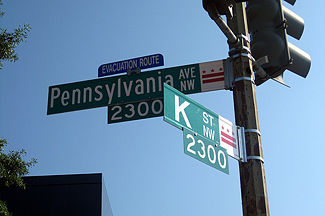CZ:Cornell University 2010 BEE 4640 Bioseparation Processes
The course coordinates
Instructor: Jean B. Hunter
Institution: Cornell University
Email: jbh5 (at) cornell.edu
Office Hours: 3-5 pm Wednesdays at 218 Riley Robb, or by appointment
The course mechanics
Eduzendium courses need a number of help pages in order to function properly within the Citizendium. This course homepage and all its standard subpages have been set up with the standard names in their standard location: A template article to prefill the students's pages with course-specific formatting and content, a template for the metadata of your course's article, and a note informing other Citizens whether they are allowed to edit your course's pages or not. Please modify these pages as you see fit. If you are done, you can delete the whole section The course mechanics from your course homepage.
Project Description
This Eduzendium project is a term project in lieu of a term paper and class presentation. Students collaborate in groups of three to generate encyclopedia articles related to bioseparation, also called downstream processing. Each student has primary responsibility for one article and serves as a reviewer for two more articles. In addition to writing and reviewing, we are developing skills in critical reading of scientific literature and in preparation of images to enhance the articles.
What We'll Be Working On
The following is a list of articles that BEE 4640 community will be working on during the Fall 2010 semester. These articles will be closed to editing by other citizens until after the conclusion of the course, though we would sincerely appreciate any citizen's contributions in the form of comments, suggestions or questions added to the articles' talk subpages.
For each of the articles you plan to have your students work on, please add a line of the form {{r_EZ|Dielectrophoresis}}, which will display as
- Dielectrophoresis [r]: Add brief definition or description
To create this article in course-specific format, please open this page in a separate window — it will guide you through the process. After each step that takes you away from this course homepage, check back here and reload the page. If you are ready to start this process, then
- Title of your course's article 1 [r]: Add brief definition or description
To create this article in course-specific format, please open this page in a separate window — it will guide you through the process. After each step that takes you away from this course homepage, check back here and reload the page. If you are ready to start this process, then
- Title of your course's article 2 [r]: Add brief definition or description
To create this article in course-specific format, please open this page in a separate window — it will guide you through the process. After each step that takes you away from this course homepage, check back here and reload the page. If you are ready to start this process, then
- Title of your course's article 3 [r]: Add brief definition or description
To create this article in course-specific format, please open this page in a separate window — it will guide you through the process. After each step that takes you away from this course homepage, check back here and reload the page. If you are ready to start this process, then
- Title of your course's article 4 [r]: Add brief definition or description
To create this article in course-specific format, please open this page in a separate window — it will guide you through the process. After each step that takes you away from this course homepage, check back here and reload the page. If you are ready to start this process, then
etc.
Once the articles have been created, they will be listed here in the following formatting:
 Electrophoresis [r]: A separation process in which charged molecules or particles in aqueous solution are separated from each other according to their relative velocity in an electric field. [e]
Electrophoresis [r]: A separation process in which charged molecules or particles in aqueous solution are separated from each other according to their relative velocity in an electric field. [e]
